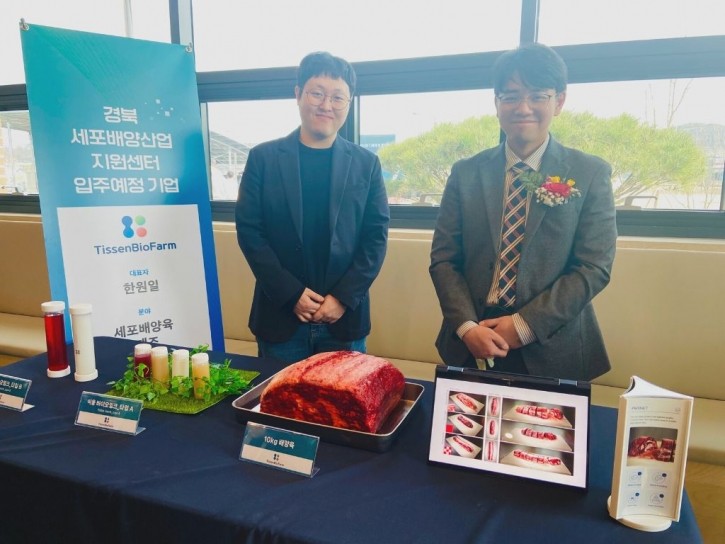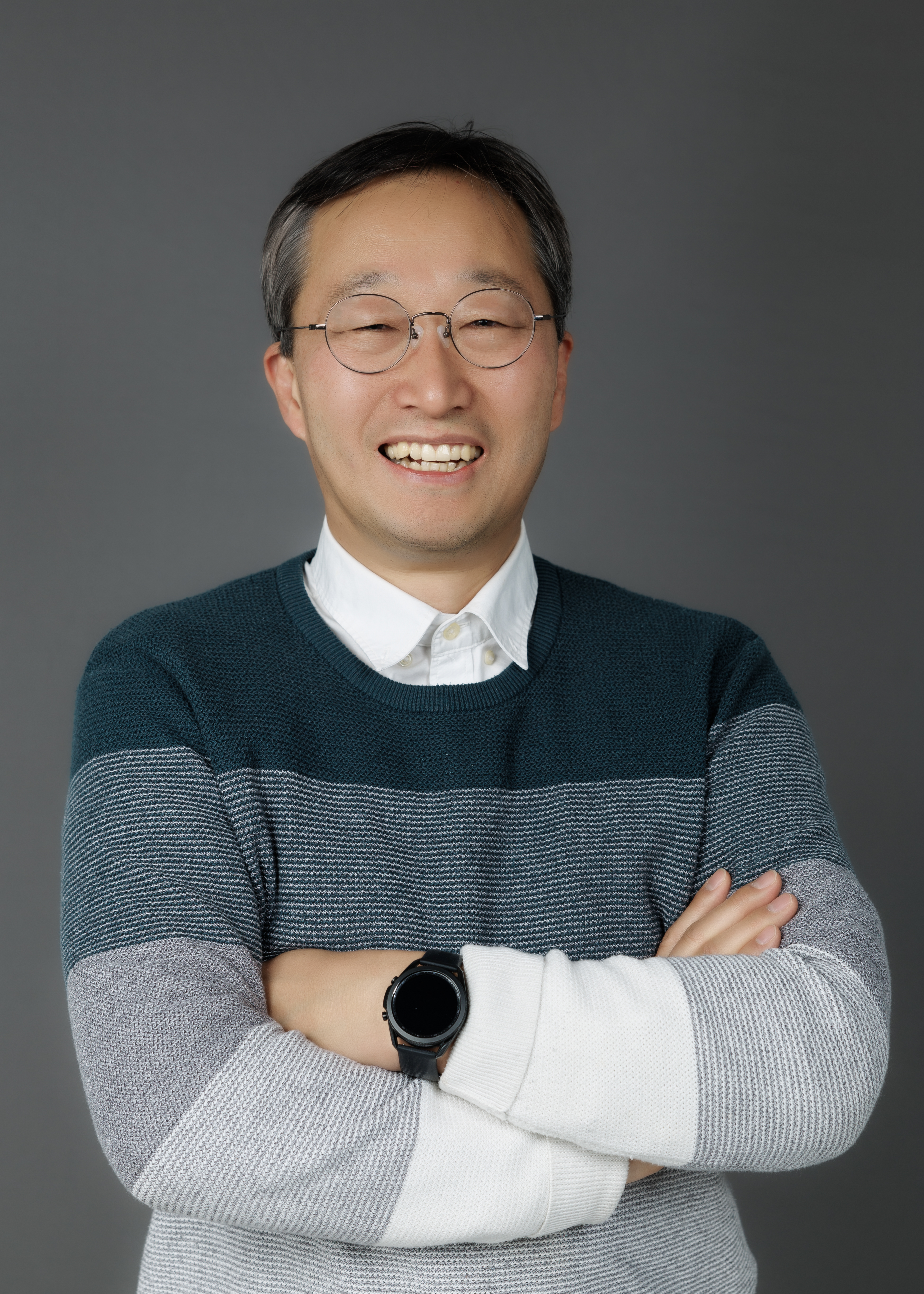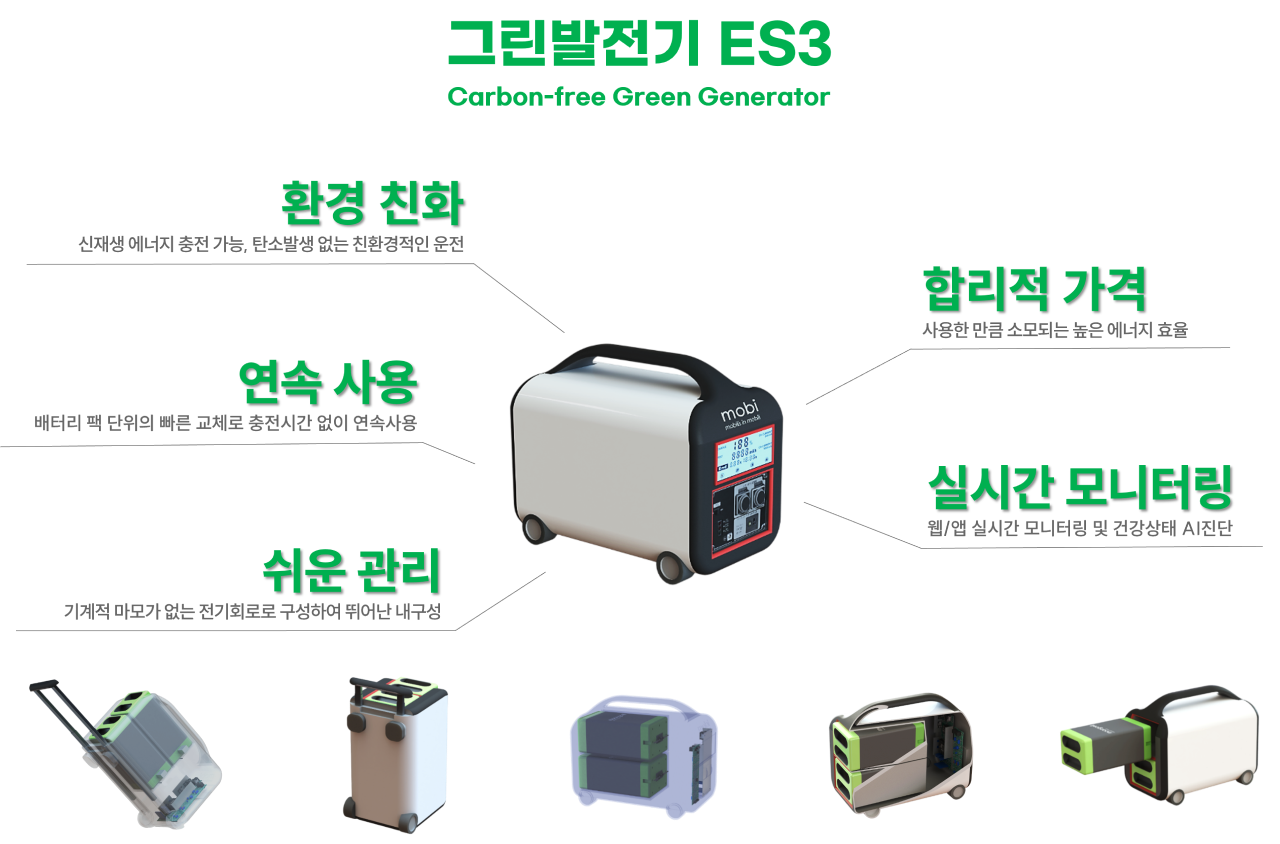Korean startups offer juicy morsels for international investors amid a tough funding climate and as the government relaxes CVC rules.

“It’s definitely a crunch time for alternative protein companies or startups in general,” says Yeonjoo La, chief strategy officer of TissenBioFarm, a Korean startup creating whole cuts of cultivated meat — complete with veins of marbled fat. “Alternative proteins have lost some of their appeal to investors.”
When TissenBioFarm was founded in 2021, the capital was readily available — in part fuelled by the South Korean government relaxing rules to allow domestic holding firms to form corporate investment units for the first time. The company completed three funding rounds in rapid succession, bringing in investors including investment firms Envisioning Partners, Stonebridge Ventures and FuturePlay.
“Good investors came in and believed in our technology and the industry we were in,” says La. Then, in the first half of last year, everything slowed.
“Alt protein investment has fallen sharply over the past years. Capital raising takes two to three times longer than before, and investors have become much more cautious, demanding and sceptical,” says La.
TisseBioFarm is one of many Korean companies created in a recent startup boom, which are now looking for ways to keep going through the slowdown.
Webinar: Pop, Beauty and chips: How to invest in South Korea

There has been growing awareness of South Korea thanks to the global popularity of K-Pop, K-Drama and K-Beauty treatments. Expertise in semiconductors, electric vehicles and AI are also attracting investors. The South Korean government, too, has relaxed regulations to make it easier for corporates to invest in local startups and for foreign investors to enter the market.
But what do investors entering the South Korean market need to know?
In this webinar, a panel of investors familiar with the Korean market will discuss:
- What is the best way to start?
- What local market quirks need to be understood?
- What are the best ways to source promising deals?
- Which startup sectors are offering the most promise right now and which ones are overdone?
Sign up here to secure you place
According to data from Korea’s Ministry of SMEs and Startups, private business investment fell in the first half of 2024 from last year. Conglomerates invested 1.02 trillion won ($761m) in startup venture funds in the first half, down 42.4% from 2022 and 12.3% from 2023, while investment from financial institutions also fell sharply.
The Ministry of SMEs and Startups is looking at ways of bringing in more investment, including getting more foreign corporate investors to the country. Last year, Global Corporate Venturing teamed up with the Ministry and the Korea Venture Capital Association (KVCA) to bring 50 global corporate venturers to visit Seoul and meet local startups, including TissenBioFarm.
Relaxing more capital laws may also help. Under the current capital law, CVCs are allowed to borrow a maximum of 40% of each fund from external lenders to invest. They are also allowed to invest up to 20% of their assets in overseas targets to prevent money fraud by major conglomerates. The South Korean government is looking to lift the ceiling to beef up corporate investment in startups.

TissenBioFarm’s story
Cultivated meat has so far failed to live up to the initial hype, with scale-up and high production costs preventing it from entering the mass market.
But TissenBioFarm believes it can overcome these obstacles with the novel biofabrication system it has developed, which allows ultrafast fabrication of muscles and fat in fibre form.
But TissenBioFarm believes it has technologies that will allow it to overcome these obstacles. “Compared to conventional 3D bioprinting, our lab-scale biofabrication system is up to 35,000 times faster. We can make 650 lb of fibres per hour in our lab, which is already close to commercial scale. And to get our system ready for mass production, we have been scaling up each component – for example, nozzle and tank – step by step,” says La.
This, along with the company’s optogenetics technology – light that induces cell proliferation and differentiation – is lowering the cost of producing cultivated meat, by eliminating the need to use traditional fetal bovine serum and other expensive proteins.
What’s more, TissenBioFarm says its product features a realistic appearance of meat thanks to its biomimicry technique. Many alternative proteins today are limited to ground meat products such as patties, nuggets, meatballs and sausages
“We can make 650 lb of fibres per hour in our lab, which is already close to commercial scale.”
“At TissenBioFarm, we can replicate meat texture and marbling by mimicking the structure of muscle tissue and marbles of real meat.
“One of our first tests successfully produced a 20 lb alternative meat prototype, which drew attention from the global foodtech community. With our technology, we can make various cuts of meat such as sirloin, tenderloin and ribeye.”
Marbling is an important factor in beef grading, as it enhances the flavour and texture of beef. TissenBioFarm claims to be the only company in the world that can create marbling by stacking fat and muscle microfibres for a desired pattern.
“We can customise the pattern or nutritional profile of the final product to meet consumers’ taste preferences or needs, by adding or subtracting certain nutrients to create a healthier, targeted product.”

By the first half of 2025, the company plans to complete its key technologies and hold tasting events, before kicking off a series A round in the second half of the year. The round already features Samsung Welstory, the food distribution and service arm of the conglomerate Samsung Group, as an investor.
“We’ll open series A round in the second half of next year and welcome corporate VCs as our shareholders,” La tells GCV.
In addition to rice, vegetables and seafood, meats are a large part of Korean cuisine. In fact, South Korea’s meat consumption exceeded rice intake for a second consecutive year, a report by the state-run Korea Rural Economic Institute in March 2024 showed.
However, meat consumption is linked to greenhouse gases produced by the livestock industry, making it one of the leading causes of climate change. Alternative proteins are crucial for a more sustainable food source.
“The future of alternative proteins is 100% there. We don’t think it’s ever going away,” La says. “But the next few years are pivotal for the successful market growth in terms of consumer acceptance and more capital flowing into the field based on the market data. We hope CVCs around the globe can play a central role in making an impact in this field with a long-term vision.”
The pilot facility is set to be built in 2026 and regulatory approvals will be secured the year after. TissenBioFarm plans to further develop its technology and lower the costs of producing cultivated meat to less than $16 per kilogram by 2027.
“By that time, our products can become price competitive with conventional prime cuts of steak. We are actively breaking through the agriculture and food tech market with low-cost, scalable technologies that produce whole-cut cultivated meat products, unforeseen by global competitors.”
Mobi

Another South Korean startup that presented to the international CVC delegation last year was the portable power generator developer Mobi. The startup is also looking for corporates to help it get to the next stage of development.
“With [CVC investors’] strategic backing, we can accelerate the development of cutting-edge energy solutions and create lasting impact on a global scale,” says Mobi chief executive Hyung Kyu Lee (pictured left).
“The convergence of technology and sustainability is no longer a choice but a necessity.”
Founded in 2021, Mobi has built power conversion, battery reuse and green energy products for electric motorcycles. Currently, the company is developing advanced power conversion technologies that deliver increased efficiency levels, significantly reducing energy loss during the conversion process.
Reuse technologies are a strong focus for Mobi because they can extend the lifecycle of batteries, particularly in electric vehicles, by repurposing them for second-life applications. This contributes to a more sustainable energy ecosystem by minimising waste and extracting more value from existing resources.
Lee believes Mobi stands out from its peers because the company’s battery lifecycle management system not only optimises performance but also reduces the environmental impact of battery disposal. Its products can easily integrate with renewable energy sources, making them adaptable and scalable for future energy grids.
South Korea’s regulatory frameworks related to new energy deployment are complex and sometimes restrictive. But Lee says the government is introducing more supportive policies for green and renewable energy projects.

South Korea’s economy is dominated by conglomerates, which heavily influence the decisions of small and medium-sized enterprises (SMEs) and state regulations. The government is trying to change that by launching subsidies and incentives aimed at promoting renewable energy technology companies.
For example, earlier this year, decarbonisation subsidies totalling KRW120.2bn ($90m) were introduced to help Korean companies with emission reduction facilities. Lee says he is hopeful that these regulatory changes will provide opportunities for clean energy startups.
Mobi will actively form cross-industry partnerships in sectors like electronics, chips and batteries. “We aim to leverage these partnerships to tap into their networks, industry experience and operational synergies,” says Lee. “This will allow us to scale faster and enter new markets more effectively.”
The company is considering a funding round in the near future, although the exact timing is still under review. “Corporate VCs will be a key part of this round, as we believe that partnering with strategic investors, especially those with deep expertise in clean technology, energy or related fields, will accelerate our growth,” Lee concludes.

Our next GCV Connect: Korea delegation will take place in Seoul from December 10 to 12 this year. If you would like to take part, please get in touch.











